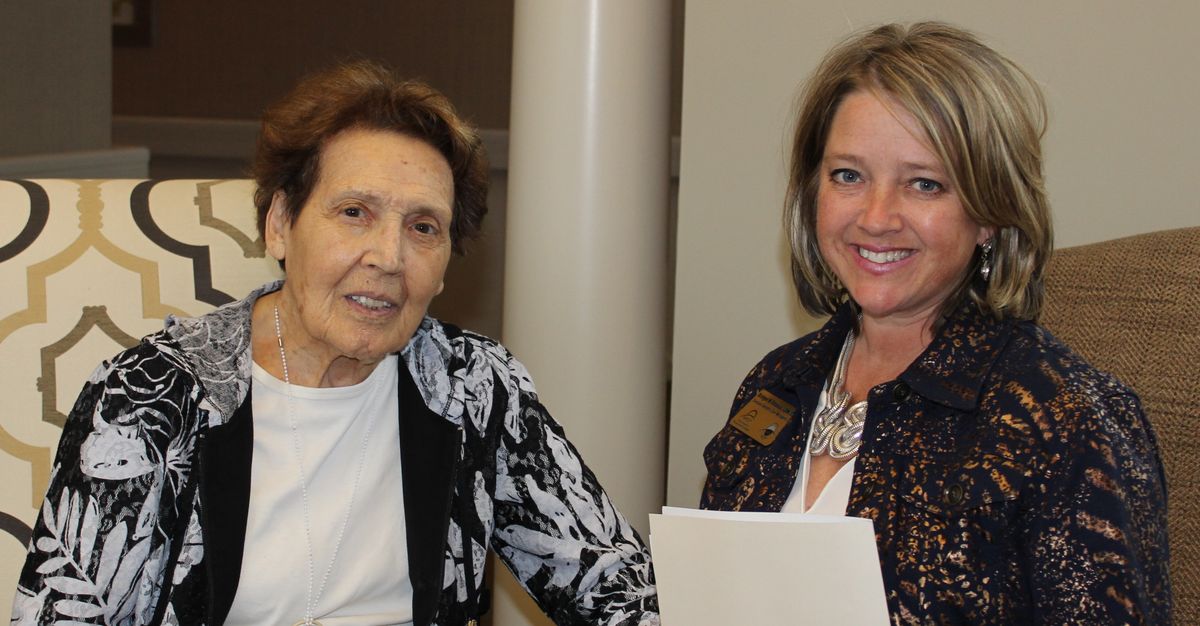Navigating the Transition: Moving a Loved One with Dementia to Memory Care

Caring for an older adult with dementia can be an emotionally challenging journey for families. There may come a point when the needs of your loved one surpass what can be provided at home, even with the best of intentions and efforts. Transitioning to a memory care facility can be the best option for both safety and quality of life, but what happens when your loved one refuses the move? In this blog, we explore some essential strategies and considerations to help families navigate this difficult decision.
Understanding the Refusal
When an older adult with dementia refuses to move to a memory care facility, it's essential to approach the situation with empathy and patience. Their refusal often stems from fear, anxiety, or a lack of understanding about the necessity of the move. To address this, try these steps:
Open Communication: Begin by having open and honest conversations with your loved one about their concerns and fears. Listen attentively to their feelings and validate their emotions.
Educate and Involve: Share information about the memory care facility with them. Encourage them to visit the facility, meet the staff, and participate in the decision-making process as much as possible. Involvement can provide a sense of control and familiarity.
Empower Choice: Whenever feasible, provide options that allow your loved one to make decisions within the constraints of their safety and well-being. For example, ask if they'd like to bring personal items or choose a room.
Consult with Professionals: Seek guidance from healthcare professionals and memory care specialists. They can provide expert advice and address any medical concerns that may be influencing the decision.
Legal and Ethical Considerations
In some cases, the safety and well-being of your loved one may necessitate the move to memory care, even if they refuse. Here are some legal and ethical considerations:
Power of Attorney: If you have been granted power of attorney, you may have the legal authority to make decisions in the best interest of your loved one, as long as it's within the boundaries of their well-being.
Capacity Assessment: Consult with legal professionals to determine your loved one's capacity to make decisions. If they lack the capacity to make choices in their best interest, you may be able to proceed with the move.
Respecting Their Dignity: Even if you have the legal authority, it's crucial to approach the situation with compassion and respect. Always aim to preserve their dignity and autonomy to the greatest extent possible.
Supporting the Transition
Once the decision has been made, it's important to support your loved one through the transition:
Prepare for Emotional Challenges: Expect that there may be periods of confusion, anger, and sadness during the transition. Be there to offer comfort and reassurance.
Establish a Routine: Encourage your loved one to maintain a familiar routine as much as possible in the new environment. Consistency can help reduce anxiety.
Stay Involved: Continue to visit and participate in their life at the memory care facility. Your presence can provide a sense of security and connection.
Conclusion
Moving an older adult with dementia to a memory care facility when they refuse is a challenging decision that requires empathy, understanding, and careful planning. By approaching the situation with compassion, involving your loved one in the process, and seeking the professional guidance from the social workers at Careplan, you can make the transition smoother for both them and your family. Remember that the ultimate goal is to ensure their safety, comfort, and quality of life as they navigate the complexities of dementia.
About the author:
Bridget Ritossa is The Owner of Careplan Geriatric Care Managers® and serves as a regional board member and Midwest President for The Aging Life Care Association™ formerly known as The National Association of Geriatric Care Managers. Bridget is the Unit Leader for the Cleveland Aging Life Care Association. She has been practicing geriatric social work and care management for over 25 years in the Cleveland area working in hospitals, CCRC’s and in the home environment. She is a licensed social worker and certified care manager. She can be reached by phone (440-476-9534) or email (bridget@careplangcm.com).